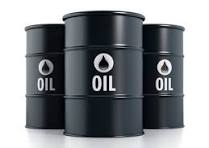Amid the ongoing conflict in the Middle East, analysts and global observers have been on edge all week, closely watching how the escalating war could reshape the international market. Since the crisis erupted, oil prices have steadily climbed, largely due to the involvement of key players in the global energy market.
In contrast to U.S. President Donald Trump’s earlier statement last week that the U.S. would decide whether to attack Iran “within the next two weeks,” American forces launched strikes on Saturday, targeting three Iranian facilities: Fordo, Isfahan, and Natanz. The following evening, Trump doubled down in a strongly worded statement, warning that “there will be either peace, or there will be tragedy for Iran far greater than we have witnessed over the last eight days.”
With Iran’s Supreme Leader, Ali Khamenei, having previously vowed not to tolerate threats from the U.S., the world now watches and waits for Tehran’s next move.
But even before any physical retaliation, the economic ripple effects of Trump’s intervention have begun to take root. By Monday, oil prices surged again, steadily approaching the $90 per barrel mark.
As global reactions pour in, Jay Woods, Chief Global Strategist at Freedom Capital Markets, noted: “When you have conflict, you have an overreaction — a knee-jerk reaction — which tends to be an exaggeration, that can last up to two to three weeks.”
Since the diplomatic reaction over the war expected from the US did not happen, concerns are mounting that some oil producers might exploit the situation to manipulate supply or pricing.
For Nigeria, the situation could go either way. While higher crude prices could offer a temporary boost to export revenues, they also risk fuelling inflation and encouraging domestic inflation. Experts warn that without meaningful structural reforms, a prolonged oil windfall could worsen macroeconomic vulnerabilities and make recovery from past policy missteps even more difficult.










